Forecasting and adapting to the family medicine workforce shortage
The Health Policy Exchange
MARCH 26, 2014
is actually experiencing a physician shortage that will worsen with population growth, the aging of the baby boomer generation, and an influx of newly insured from the Affordable Care Act. But how has the specialty of family medicine fared, and what else can be done to extend capacity of the existing primary care workforce?

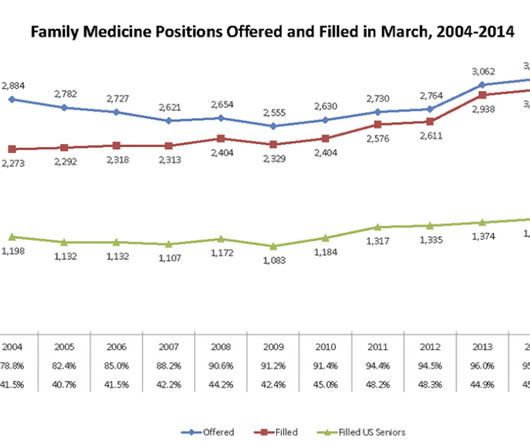
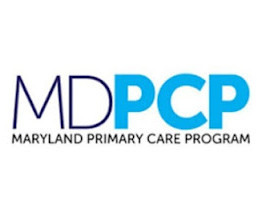
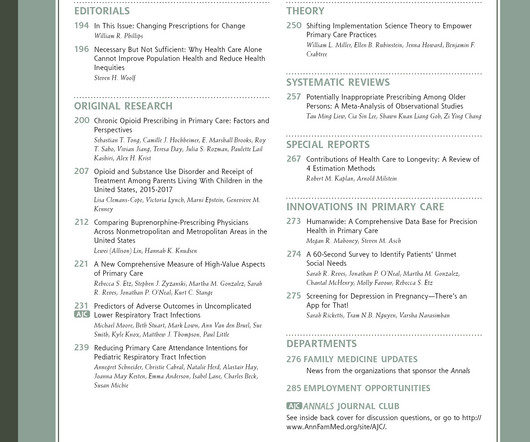
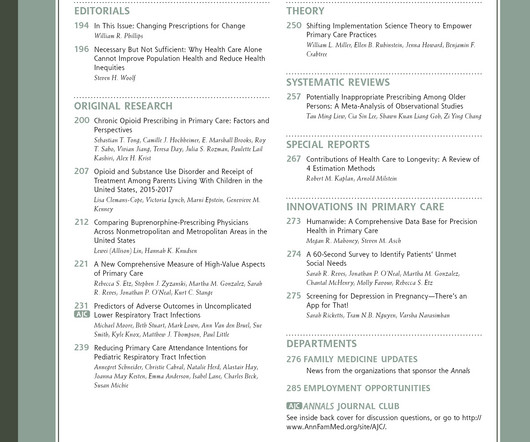
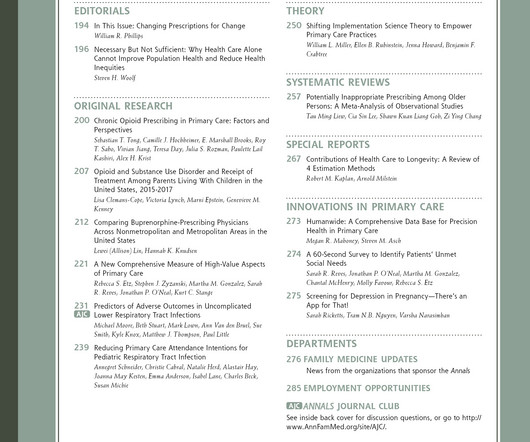
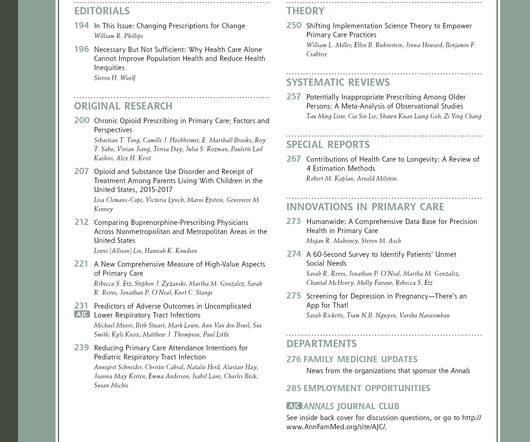
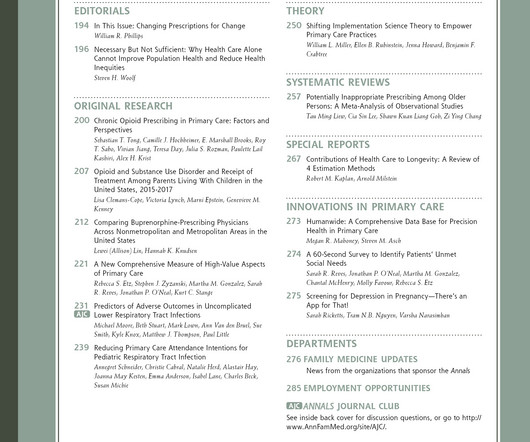

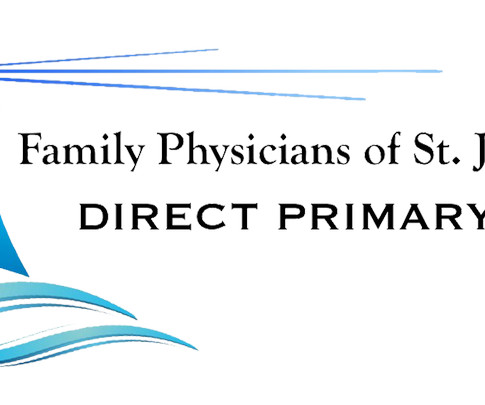













Let's personalize your content